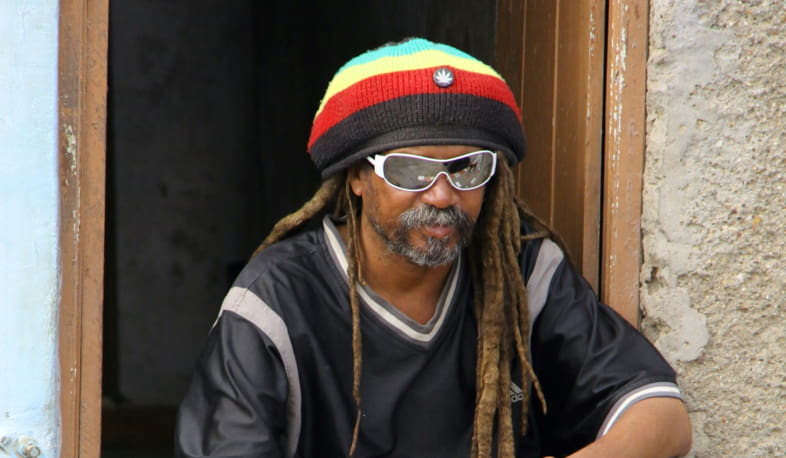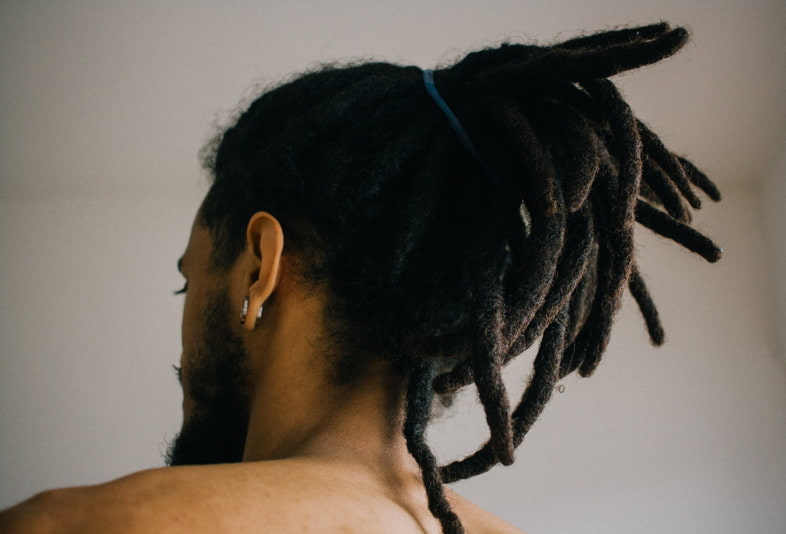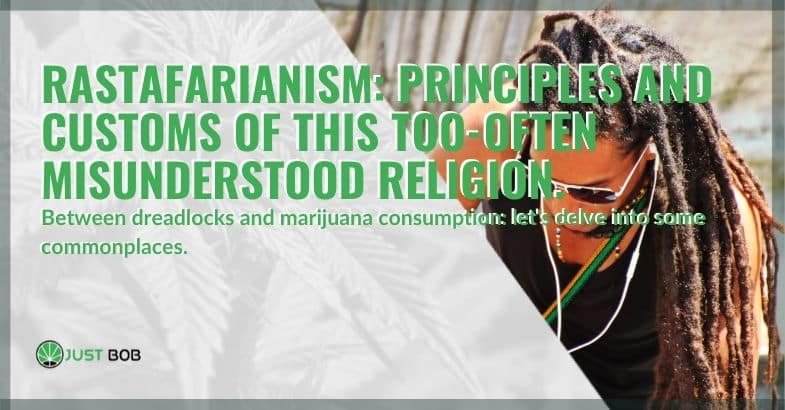Modified on: 30/08/2023
Between dreadlocks and marijuana consumption: let’s delve into some commonplaces
Nowadays, it is widespread to find oneself reasoning by associating ideas. This mechanism, called prejudice, at a biological level, is nothing more than a beneficial technique of the human brain to speed up decision-making and thus increase efficiency.
Exaggerating this process led to prejudice as we know it today: unfounded discrimination based on often unjustified associations of ideas.
It is the case, among many others, of those who decide to wear dreadlocks.
Often, references to the Rastafarian culture have led to penalising the category based on the belief that the basis of this culture is the neglect of personal hygiene and immoderate consumption of marijuana.
But is this the case?
In this article, I talk about the origins of the Rastafarian religion and the real reasons for its customs.
Read also: Some say that zinc helps remove THC from the body. What is the truth?
How did Rastafarianism originate?
The Rastafarian religious movement originated in Ethiopia and was named after the office of Ras Tafari. In the Ethiopian language, Ras stands for ‘head’ or ‘prince’ and Tafari for ‘being feared’.
This title, for those belonging to the Rasta system, refers to Haile Selassie, who has crowned Emperor of Ethiopia in 1930. On the occasion of the coronation, Selassie was given a series of titles, such as ‘Lion of Judah, King of Kings, Chosen of God’.
This event triggered multiple repercussions worldwide, involving the entire community belonging to the Afro-Caribbean culture.
Thus, even in countries far away from Ethiopia, the belief began to spread that Haile Selassie was the new messiah, the successor of Jesus.
The force of this belief was so powerful that it led preachers like Joseph Hibbert, who lived in Kingston, Jamaica, to declare that Haile was the new messiah publicly.
But what are the principles behind this religious current?
Rastafarian theology is based on and represents an evolution of Christian morality. Rastas observe the Sinai 10 commandments and share the rules of love of neighbour professed by Jesus Christ.


But their ideology does not stop there. Members of the Rastafarian culture and religion, in fact, according to Selassie’s preaching, have a deep respect for all other religious cultures. They also believe in the observance of and respect for natural morality and universal human rights, regardless of the religious positions adopted or shared, which they think they cannot or should not judge.
Rastas are doctrinally opposed to religious sectarianism or fanaticism.
Among the pillars of the Rastafarian current is the principle of self-determination of peoples, collective security, equal rights and non-interference.
In addition, they believe in the need for and respect for a supranational order that aims at the peaceful resolution of conflicts and the solution of collective problems and repudiates war in all its forms.
Rastas also believe in the need to build democratic and liberal political systems that observe the Declaration of Human Rights, defend economic, civil, spiritual and cultural freedom, and reject any totalitarian ideology that absorbs the soul of man, the exclusive property of God.
They also believe in the need for the state to be socially engaged and go beyond guaranteeing freedom, guiding and educating man, even secularly, to respect God and neighbour.
The last key point of Rastafarianism is the attention to the conditions of the African continent, which, following centuries of aggression and exploitation, is worthy of redemption.
Read also: How cannabis milk is made and what the properties of this drink are
Dreadlocks: much more than a fashion
Dreadlocks are perhaps the symbol of Rasta culture that immediately comes to mind when we hear about them. But do we know what they represent?
The motivation behind this custom lies in the interpretation of Holy Scripture.
And I know you’d never have guessed it…
According to Rastas, the appearance of hair with dreads evokes the mane of a lion, a symbol of the tribe of Judah. In a passage in the Bible, one can read how the faithful were instructed not to let any blade touch their head and, more explicitly, not to cut their beards or hair until the sons of Judah of Babylon had been freed.


The Rastas, therefore, embraced this invitation, consecrating their heads to the cause of Judah and promising to cut their hair only after their people were liberated.
But the customs of the followers of the Rastafarian religion do not end there. Besides the typical dreadlocks, another element is often associated with their culture: the consumption of marijuana. But how come?
Rastas and the use of cannabis: what is behind this particular custom?
As I said, when one thinks of Rastas, it is almost impossible not to visualise the stereotype of the Jamaican with dreads smoking a giant joint. But where does this parallelism come from?
Contrary to what most think, Rastafarian culture does not see marijuana consumption (not the CBD cannabis) as a necessary act of moral or spiritual salvation.
For Rastas, it is a religious meditative activity devoid of hedonistic or recreational purposes. Indeed, rightly or wrongly, they regard marijuana as a medicinal plant with many beneficial properties, as has been confirmed by numerous studies on the subject.
Cannabis is also regarded as a powerful resource – not only medicinal but also material – fundamental to the well-being and progress of nations.
The non-recreational dimension of marijuana use is confirmed by a further precept fundamental to this culture: preaching self-control and moral discipline, so much to repudiate all forms of drunkenness.
To conclude: what are the principles of Rastafarianism?
In conclusion, we could see that Rastafarian culture is much more than a peculiar hairstyle and marijuana on the beach.
Indeed, the representatives of Rastafarianism are followers of a movement that is first and foremost religious but also cultural. Unlike many other religions that do not allow secularism, Rastas believe in principles firmly anchored in real life and consequently can be shared even by those who do not feel mainly involved in the spiritual aspect but feel a social responsibility.
Contrary, then, to what most of us mistakenly associate with their way of life, even the use of marijuana – considered a medicinal herb and an economic resource in general – is anything but recreational, in keeping with their beliefs that reject hedonism as an end in itself.
For Rastas, cannabis is an aid to meditation, sacred to them as a means to get closer to God.
After this little insight, if you are a fan of CBD cannabis and its derivatives (such as CBD oil and legal hash), we invite you to visit our Justbob.shop online store.
We are waiting for you in our CBD flower shop!









